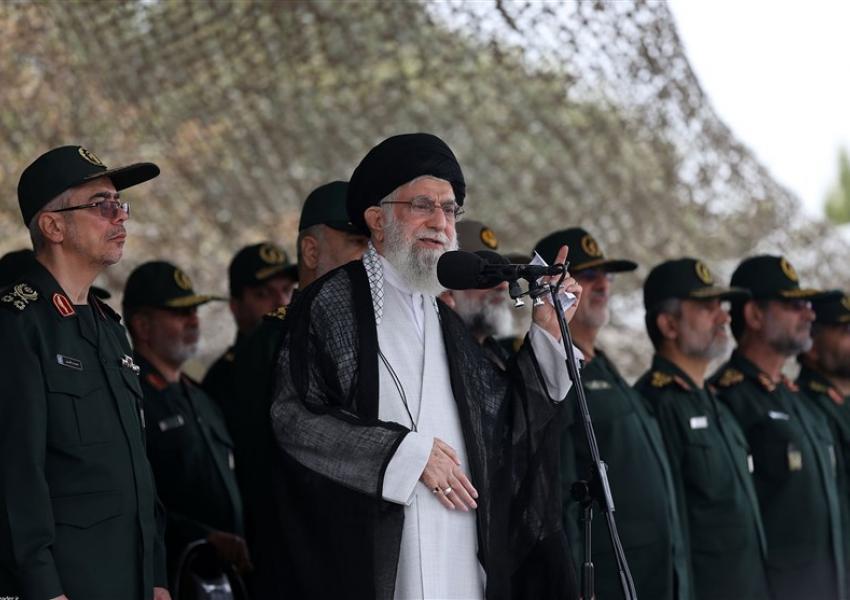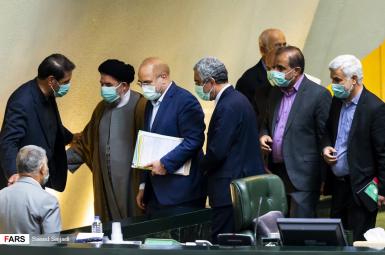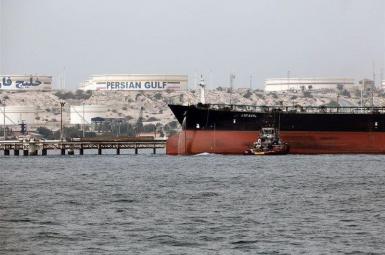
Iran’s Military Doctrine: Defensive or Aggressive?
Ayatollah Khamenei, Iran’s supreme leader, had a meeting with commanders of Iran’s Revolutionary Guard Corps (IRGC) last week. He demanded them to expand their overseas activities and added that “we mustn’t be satisfied with our region. By remaining within our borders, we shouldn’t neglect the threats over our borders. A broad overseas vision, which is IRGC’s responsibility, is our strategic depth and it is of the utmost importance”.
The ayatollah’s words are important now because it can be interpreted as a change in Iran’s military and security doctrine. To assess this change, I will review Iranian official statements made prior to this.
Iran’s military activities always meet international condemnation. But whenever there has been news of such activities, Iranian officials insist on the defensive nature of their military achievements. They play the history card at times and claim that Iran has never started a war.
On the other hand, leaders of the Islamic Republic of Iran believe their military spending is modest in comparison with their neighbors. Zarif, Iran’s foreign minister, said Iranian military expenses are 16 billion dollars per annum which even includes personnel salaries. However, based on HIS Markit’s report, Iran overtook Israel and Canada in 2018 in terms of military spending. The report places Iran at 15th in the world with a 17 billion and 400 million dollars estimate.
It is necessary to take into account Iran’s spending of 6 billion dollars annually for its military presence in Syria, funding its militias in Iraq and Yemen, in addition to the multibillion-dollar annual bill for handling Hezbollah in Lebanon. If you add these up to the bankrupt Iranian economy which is suffering from mounting sanctions, they are going to face very pressing challenges soon.
It seems, however, Iran’s leaders not only have no care for their declining economy with 40% inflation, but they also intend to increase their military budget.
How necessary is military expenditure?
A few incidents in the 20th and 21st centuries made most countries to invest in their military capabilities. Those who started World War One and Two are the initiators of this military competition around the world during the cold war. This competition almost demised with the end of the cold war.
New alliances and coalitions were created, and political and economic cooperation became commonplace. Although China and Russia had defined their doctrines opposing the US during the cold war, they became trade partners in the connected new global order. Regardless, they maintained their military competition on the side without rising any tensions.
In this context, Iran before the 1979 Islamic revolution had generous spending on the military which has led to the country to be known as the most advanced country in the Middle East in terms of military. The big difference with today’s Iran is that pre-revolution Iran was not a threat to any other country in the region or the rest of the world. That friendly relationship with other countries gave its place to the ideologic and hostile policies of the Islamic Republic of Iran.
There have been few instances of international confirmation that Iranian military activities are defensive. One was in 2013 in the middle of crippling sanctions on the regime when Pentagon reported that “Iranian military strategy is designed to be defensive and it is planned in a way to defend and neutralize an initial assault; also they have plans for some retaliatory activities against the invader so that they can activate diplomatic solutions without giving away any benefits.”
This report was released in the midst of lots of cynicism and pessimism about Iranian military activities.
What weapons does the Iranian Regime Invest on?
After the Iran-Iraq war in the 1980s, Iran’s leaders already knew that the enmity with global power would deprive them of advanced military technologies. Following the collapse of the Soviet Union, they turned to countries like North Korea and Libya to supply their artillery. The only alternative was to import N Korean, Chinese or Russian technologies to increase their ballistic missile capabilities.
They spent so much money and effort into this type of activity that the international community is worried that Iran might be able to reveal its ballistic missiles with nuclear heads very soon.
Are Iran’s Weapons Defensive?
According to Pentagon’s report in 2013, it was. However, there have been many changes in the geopolitics of the Middle East after Iran’s nuclear deal. Recent comments by Iran’s military elites, including the commander of IRGC, shows these weapons are not defensive anymore and they have gained an aggressive aspect.
Salami, the commander of IRGC, has recently said at a meeting with other heads of the Corps that “Today we have the power to attack and to resist. We can now assault our enemies at any geography, in any scale, with precision, and it is verified.”. He also added that “we have, as the first step, prepared the capacity to destroy the Zionist regime (Israel). The second step would be to remove this cursed regime off the map. This is not a dream anymore and it’s an attainable goal.”
Therefore, considering the heavy sanctions on the Iranian regime, their drowning economy, and civil protests sparking all around the country, we can interpret the supreme leader’s and IRGC commander’s comments as that the leaders of the Islamic republic have decided to take an aggressive doctrine to defer their predicament. With increasing domestic and foreign pressure, they might enter a “holy war” to secure the existence of the regime.








